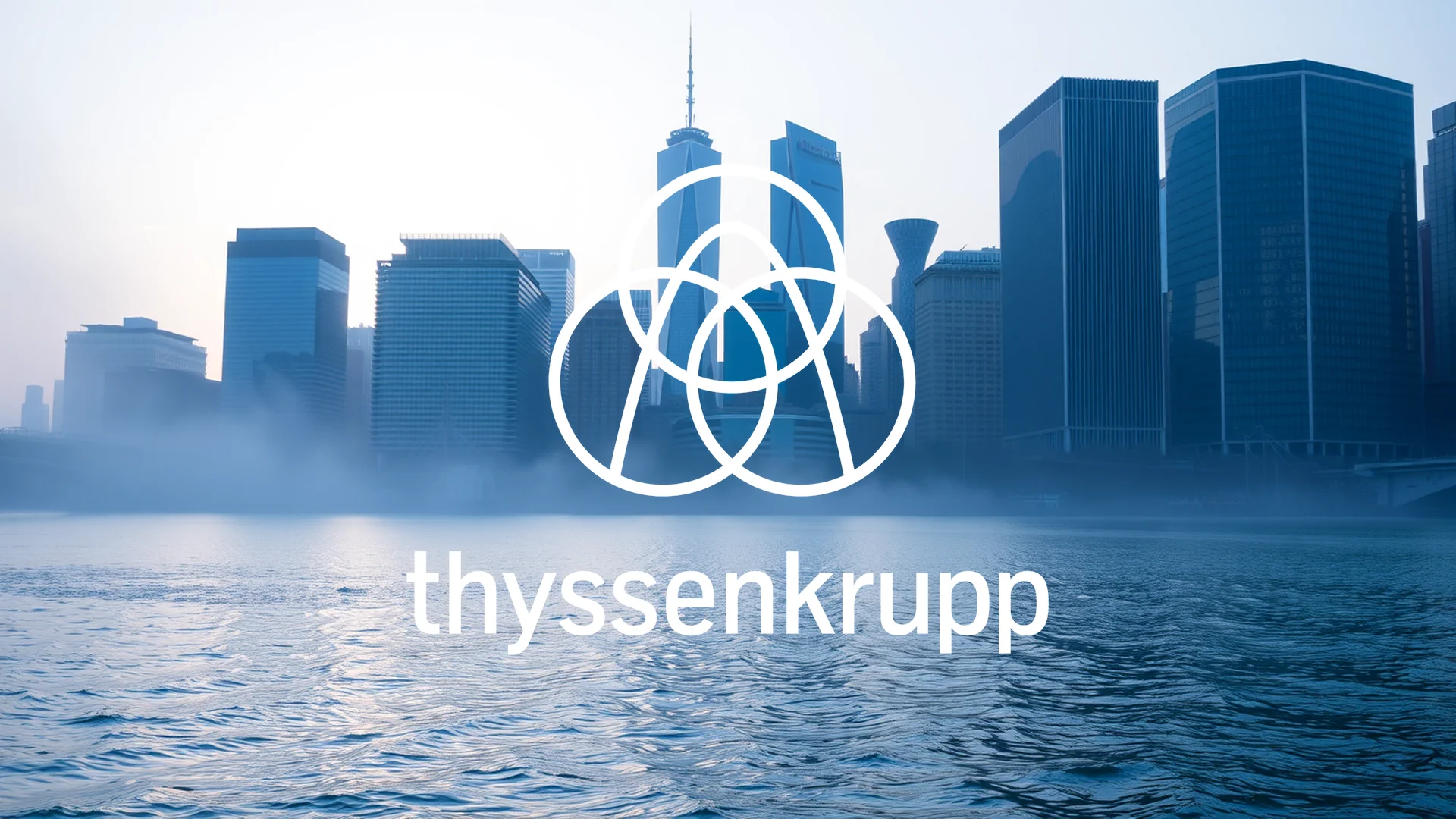Thyssenkrupp, one of Europe’s industrial pillars, is confronting a severe survival challenge as heavily subsidized Chinese steel floods the market. Dennis Grimm, a senior executive at Thyssenkrupp Steel Europe, has issued a stark warning about the potentially devastating impact on the company’s core operations and the broader European steel industry.
Unfair Competition Undermining Market Stability
The European steel sector is grappling with a massive structural imbalance. Chinese competitors, benefiting from significant state subsidies, are exporting steel at prices up to 50% lower than European producers can match. This has created a market environment where approximately 700 million tons of global excess capacity are suppressing prices and threatening the viability of established producers.
For Thyssenkrupp, this translates directly into lost contracts as customers increasingly turn to cheaper alternatives. The company’s steel division, traditionally the operational backbone of the conglomerate, is experiencing substantial order erosion that jeopardizes its fundamental business model.
Grimm emphasized that the consequences extend beyond simple price competition. Critical transformation initiatives are being delayed, blast furnace operations are coming under intense pressure, and the entire industrial value chain is showing signs of fragmentation.
Policy Intervention Becomes Critical
In response to this escalating crisis, Thyssenkrupp’s leadership has outlined specific measures they believe policymakers must implement urgently:
Should investors sell immediately? Or is it worth buying Thyssenkrupp?
- Immediate trade protections: Swift action against subsidized imports that distort market pricing
- Comprehensive CBAM implementation: A Carbon Border Adjustment Mechanism without exemptions or loopholes
- Domestic content requirements: Binding quotas for European-produced materials in public procurement projects
Company management stresses that without rapid deployment of proposed import tariffs and quota reductions, the European steel industry could sustain permanent damage.
Naval Division Suffers Significant Setback
Compounding the steel sector difficulties, Thyssenkrupp’s marine systems subsidiary (TKMS) has encountered a major setback. The division, considered a strategic growth pillar, recently lost a multibillion-euro contract with Norway for new frigate construction to British competition.
The NATO member’s decision to award the contract to a non-German company represents a substantial blow to TKMS, which had been viewed as a promising component of the conglomerate’s diversification strategy.
Despite these mounting challenges, Thyssenkrupp shares have demonstrated remarkable resilience, posting an impressive 188% annual gain. However, analysts caution that without effective political intervention to level the playing field against unfairly subsidized competition, this market performance may prove unsustainable.
Ad
Thyssenkrupp Stock: Buy or Sell?! New Thyssenkrupp Analysis from February 7 delivers the answer:
The latest Thyssenkrupp figures speak for themselves: Urgent action needed for Thyssenkrupp investors. Is it worth buying or should you sell? Find out what to do now in the current free analysis from February 7.
Thyssenkrupp: Buy or sell? Read more here...












